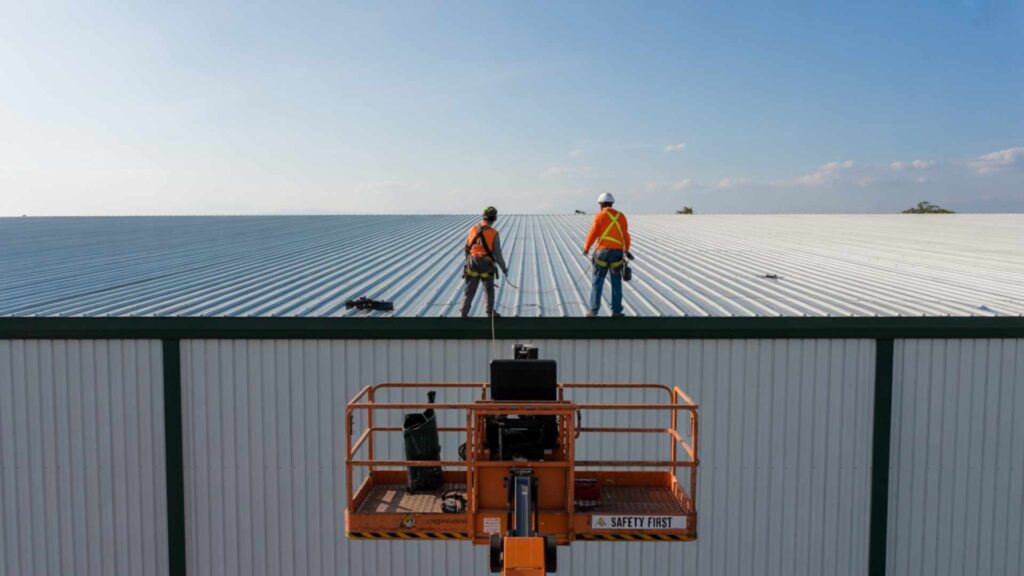Dubai has established itself as the trading hub of the Middle East by investing heavily in logistics, infrastructure, and business-friendly regulations. As a result, warehouses are in constant demand, whether for import and export, e-commerce, manufacturing, or general storage.
However, setting up a warehouse in Dubai is not as simple as renting a facility and stocking it with goods. Strict regulations govern warehouse approval in Dubai to ensure that facilities are structurally safe, fire-compliant, environmentally responsible, and registered with the appropriate authorities.
This guide provides a step-by-step overview of the warehouse approval process in Dubai, including the authorities involved, required documents, costs, timelines, and common mistakes to avoid.
Table of Contents
Understanding Warehouse Licensing in Dubai
The type of warehouse you choose determines which approvals you need and which authorities oversee your application. Common categories include:
Commercial Warehouses – For storage and distribution.
Industrial Warehouses – For light manufacturing or processing.
Bonded Warehouses – Controlled by Dubai Customs for imported goods under duty suspension.
Free Zone Warehouses – Located in zones like JAFZA or Dubai South with customs and tax benefits.
A mainland warehouse in Dubai requires licensing from the Department of Economy and Tourism (DET, formerly DED), along with Dubai Municipality clearances. In contrast, Free Zone warehouses are regulated by their respective authorities such as Trakhees, JAFZA, or DAFZA.
Key Authorities for Warehouse Approval in Dubai
Several agencies are involved in the licensing and approval process. Missing approval from even one authority can delay operations. The main bodies include:
Dubai Department of Economy & Tourism (DET/DED): Issues trade and industrial licenses.
Dubai Municipality: Reviews site zoning, construction drawings, and compliance with building codes.
Dubai Civil Defence (DCD): Inspects fire and safety systems.
Trakhees & Free Zone Authorities: Approve warehouses in Free Zones, including design and occupancy permits.
Dubai Customs: Manages bonded warehouses under customs supervision.
DEWA (Dubai Electricity and Water Authority): Provides utility clearances.
Step-by-Step Process for Warehouse Approval in Dubai
The process varies between mainland, Free Zone, and bonded warehouses, but generally follows these steps:
1. Select Location and Warehouse Type
Decide whether your warehouse will operate in Dubai Mainland, a Free Zone, or under Customs.
2. Apply for Initial Approvals and NOCs
Submit your business intent, warehouse layout, and preliminary documents to DET, Dubai Municipality, or Free Zone authorities.
3. Prepare Technical and Safety Documentation
Include architectural drawings, structural layouts, MEP plans, and fire safety designs for review.
4. Submit Final Application and Pay Fees
Provide Ejari (tenancy contract), MOA, ownership documents, and fee payments.
5. Authority Inspections
Dubai Civil Defence and other agencies conduct site visits to verify compliance.
6. Final License Issuance
Once approved, the warehouse license in Dubai is granted and operations can begin.
Required Documents for Warehouse Approval
Common documents required include:
Valid trade license application form
Passport, visa, and Emirates ID copies of owners/shareholders
Memorandum of Association (for mainland warehouses)
Ejari tenancy contract or lease agreement
Site layout and architectural drawings
Fire and safety compliance certificates (Civil Defence)
Environmental clearance (if applicable)
Bank guarantee for bonded warehouses (AED 50,000–1.5 million)
Costs and Timelines for Warehouse Approval in Dubai
Mainland warehouses: AED 10,000 – AED 30,000 for approvals and licensing.
Free Zone warehouses: AED 20,000 – AED 50,000 annually (package inclusions vary).
Bonded warehouses: Bank guarantees from AED 50,000 to AED 1.5 million.
Approval timelines usually range from 3 to 6 weeks, depending on inspections and documentation readiness. Free Zone approvals may take longer.
Detailed cost breakdown is here
Common Mistakes to Avoid
Submitting incomplete technical drawings
Overlooking fire safety standards
Applying for the wrong license type
Ignoring environmental requirements
Underestimating approval timelines
Renewal and Compliance for Warehouse Approvals
Warehouse licenses in Dubai must be renewed annually. Renewal requires:
Updated tenancy contract or Ejari
Valid insurance coverage
Updated Civil Defence clearance
Renewal fee payment
Non-compliance can result in penalties, suspension, or blacklisting.
Benefits of Proper Warehouse Approval in Dubai
Securing official warehouse approval in Dubai provides:
Legal protection against fines or closures
Credibility with clients and partners
Eligibility for insurance coverage
Access to utilities and customs clearance
Flexibility for expansion and scalability
Frequently Asked Questions (FAQs) on Warehouse Approval in Dubai
Q1. How long does it take to get warehouse approval in Dubai?
On average, the process takes 3–6 weeks. Free Zone approvals may take longer due to detailed inspections.
Q2. Is Dubai Civil Defence approval mandatory for all warehouses?
Yes. Fire safety clearance from Civil Defence is required for every type of warehouse in Dubai.
Q3. Can I operate a warehouse in Dubai without a trade license?
No. A valid trade or industrial license is mandatory before applying for warehouse approval.
Q4. What is the difference between a godown and a warehouse in Dubai?
A godown is an informal, unlicensed storage space, while a warehouse is officially approved and licensed.
Q5. What documents are needed for bonded warehouse approval in Dubai?
Bonded warehouses require a bank guarantee (AED 50,000 for private and AED 1.5 million for public) along with standard documents.
Q6. How often should warehouse approvals be renewed?
Approvals must be renewed annually with updated tenancy contracts, insurance, and Civil Defence certificates.
Conclusion
Obtaining warehouse approval in Dubai is essential for safe, legal, and scalable operations. From selecting the right warehouse type to securing approvals from Dubai Municipality, Civil Defence, and Free Zone authorities, businesses must follow a structured process to avoid delays.
At Durra Altaj Contracting, we specialize in warehouse design, construction compliance, and regulatory approvals, ensuring your warehouse project in Dubai meets all authority requirements and operates seamlessly.



